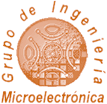| Ficha completa |
| Título: | Component-based technologies for HW/SW Co-Design |
| Tipo: | Publicacion en Proceedings o Actas internacionales |
| Lugar: | Embedded Real Time Software and Systems-ERTS2. Toulouse. France |
| Fecha: | 2012-02 |
| Autores: |
Elena Alaña
Francisco Ferrero
Ana Isabel Rodríguez
Raúl Valencia
Eric Conquet
Juan Antonio Puente
Juan Zamorano
Fernando Herrera
Roberto Varona
|
| Líneas: |
Diseño y verificación de sistemas embebidos HW/SW
|
| Proyectos: |
FP7 IP 247999 COMPLEX
HWSWCO
|
| ISBN: | |
| Fichero: |
|
| Resumen: | Embedded systems are commonly designed by specifying and developing HW and SW systems separately. On the contrary, the HW/SW co-development exploits the trade-offs between hardware and software in a system through their parallel design.
HW/SW Co-development techniques take advantage of the flexibility of system design to develop architectures that can meet stringent timing and performance requirements with a shorter design cycle. Moreover, advances in the automation of the design of HW and SW and the adoption of the Model Driven Architecture (MDA) paradigm make possible the definition of a proper integration substrate and enables the continuous interaction of the HW and SW development paths.
This paper presents the work and research carried out on HW/SW Development Technologies within the scope of two research programs: ESA HWSWCO (Hardware-Software Co-design) TRP (Technology Research Program) study, contract ESTEC 22810/09/JK, and the European Commission (EC) COMPLEX project (FP7/247999).
The HWSWCO study has investigated the HW/SW co-design phase to integrate this engineering task as part of the ASSERT (Automated proof-based System and Software Engineering for Real-Time applications) process and compatible with the existing approach, process and the TASTE tool-set.
The primary objective of COMPLEX project has been to develop a design methodology and framework for iteratively exploring the design space of embedded HW/SW systems.
Paper.
|








